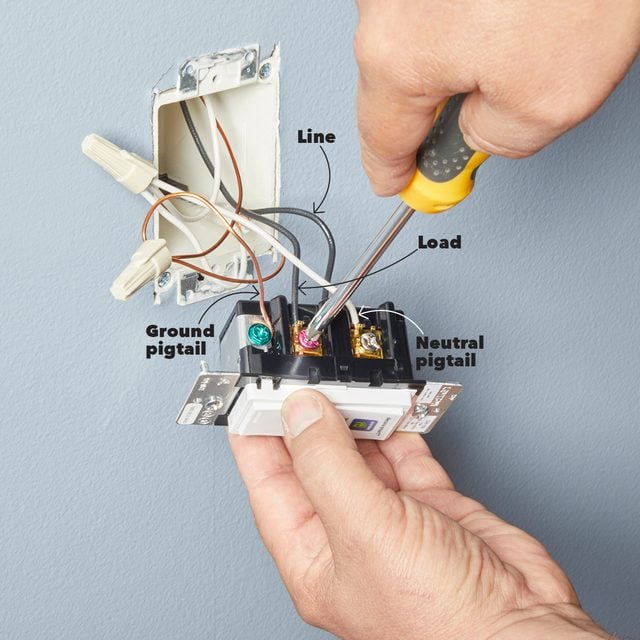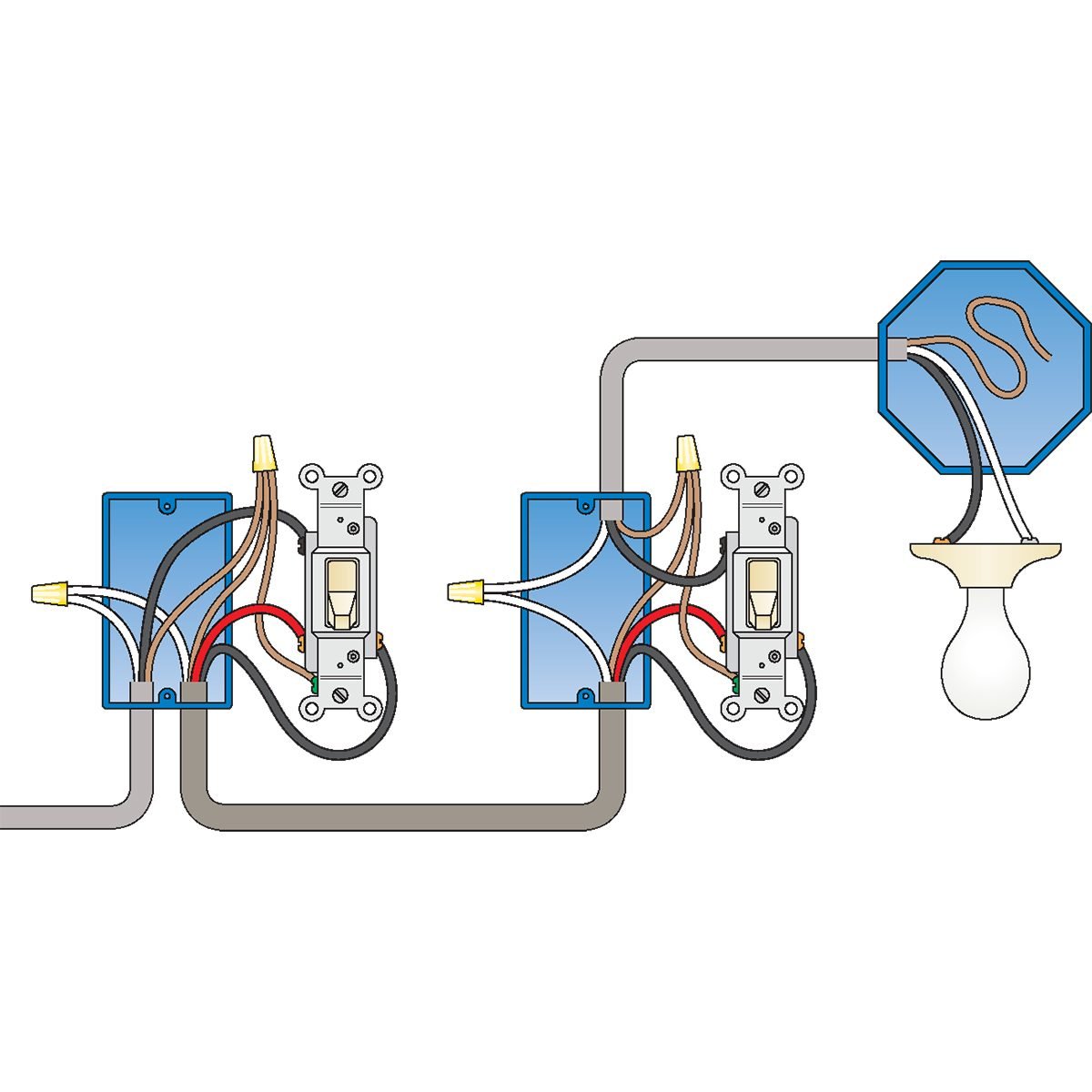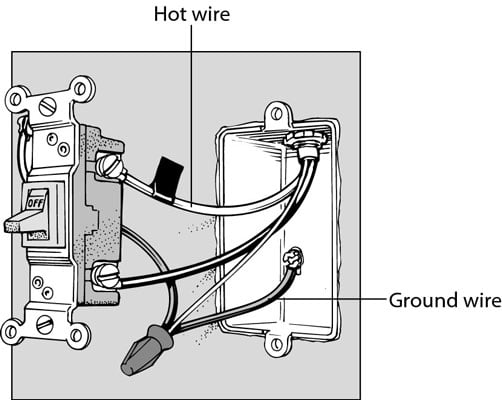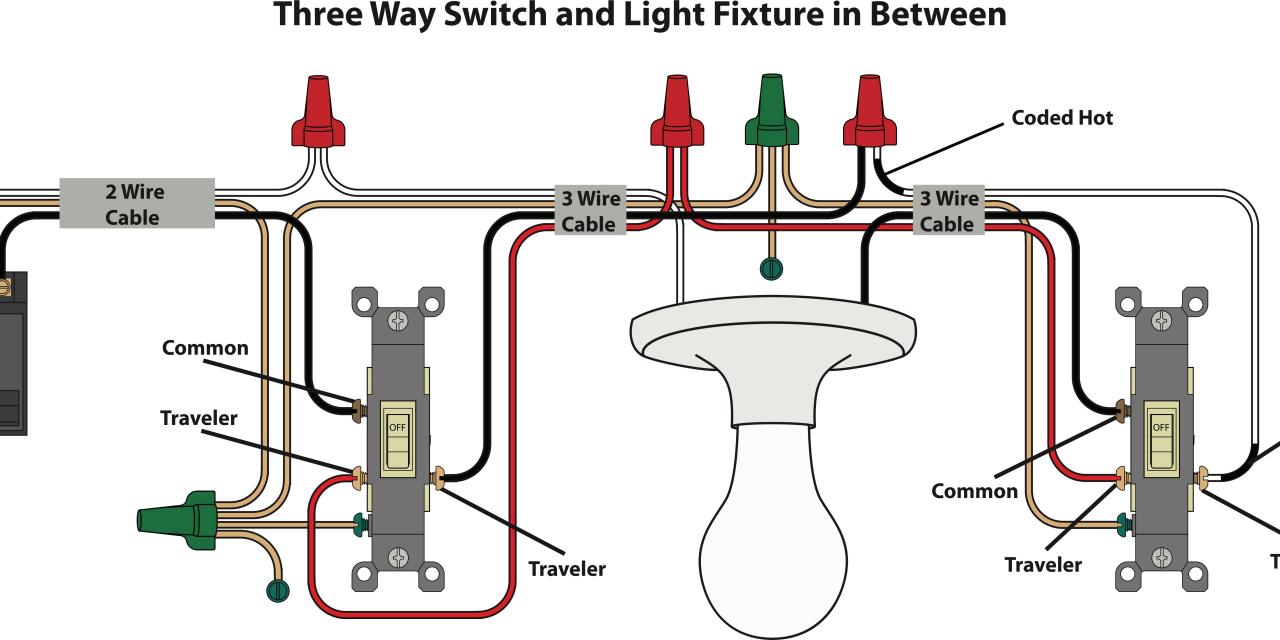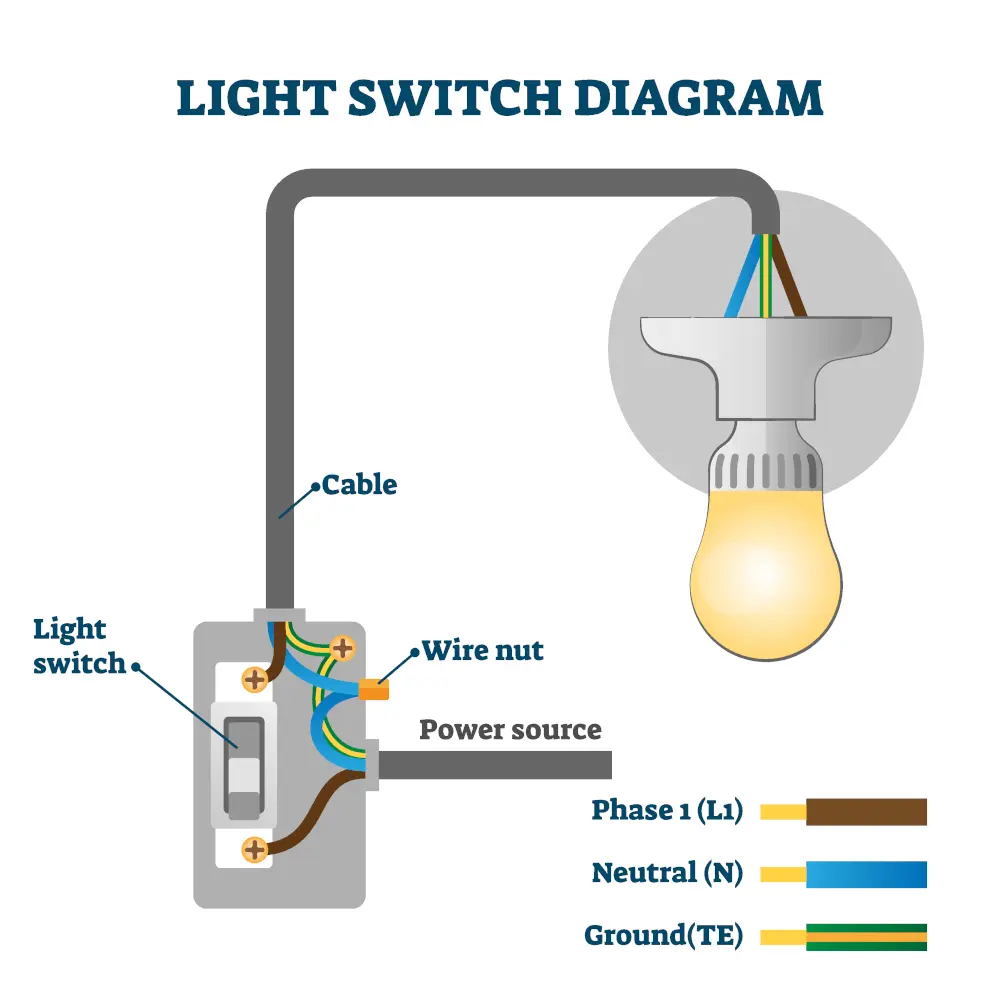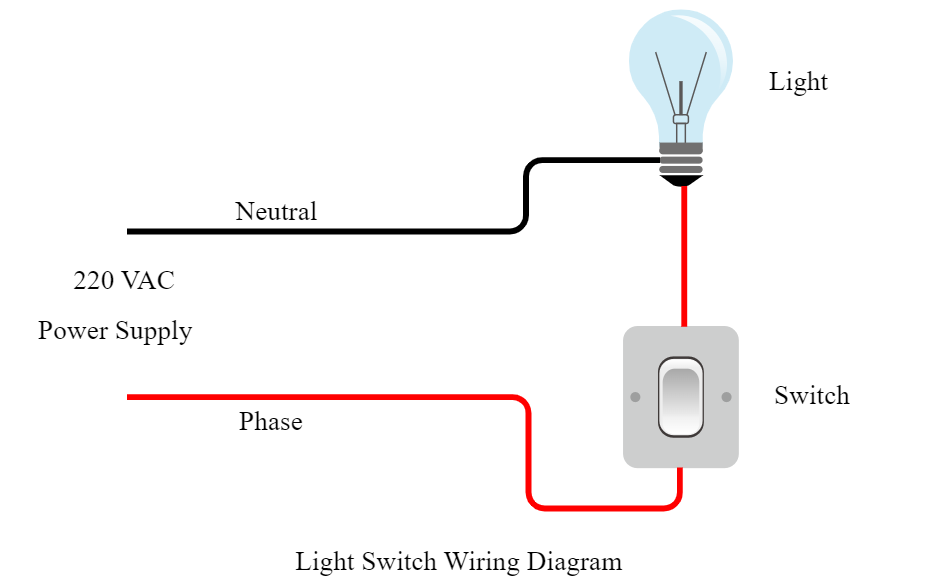How To Do Light Switch Installation
:max_bytes(150000):strip_icc()/how-to-wire-and-install-single-pole-switches-1152330-05-2de77af170364a6fb3846f30634a5cd3.jpg)
Imagine the soft glow of twilight filtering through your windows as you head to flip on the living room light. But instead of a reassuring click and instant illumination, you're met with… nothing. A faulty light switch can be more than just an inconvenience; it's a small disruption to the smooth flow of your home. But don't despair! Replacing that stubborn switch is often a simpler task than you might think.
This article provides a step-by-step guide to safely and effectively install a new light switch, empowering you to tackle this common household repair with confidence. We'll cover everything from gathering the necessary tools to connecting the wires, ensuring a successful and safe installation.
Safety First: Preparing for the Installation
Before you even think about touching a wire, the most critical step is to turn off the power to the circuit at the breaker box. This is non-negotiable! Find the breaker that corresponds to the light switch you'll be working on and flip it to the "off" position.
To double-check that the power is truly off, use a non-contact voltage tester. Hold the tester near the switch wires; if it lights up or beeps, the power is still on. Consult with a qualified electrician immediately if you are unsure, do not proceed.
With the power safely off, gather your tools. You'll need a flathead and Phillips head screwdriver, wire strippers, a non-contact voltage tester, and your new light switch. Consider a pair of work gloves as well.
Removing the Old Switch
Carefully unscrew the faceplate of the old light switch. Then, using your screwdriver, remove the screws that hold the switch to the electrical box.
Gently pull the switch out of the box. Be cautious not to yank on the wires.
Before disconnecting any wires, it's helpful to take a picture of how they're connected to the old switch. This serves as a valuable reference when wiring the new switch.
Now, carefully disconnect the wires from the old switch. Most switches have screws that you loosen to release the wires, while others may use a push-in connection. Use your wire strippers to ensure a fresh, clean end on each wire if necessary. Never pull the wires from the back of the switch as this could damage the switch.
Installing the New Switch
With the old switch removed and the wires prepped, it's time to connect the wires to the new switch. Refer to the picture you took of the old switch wiring.
Typically, there will be a ground wire (usually green or bare copper), a neutral wire (usually white), and one or two hot wires (usually black or red). Connect the wires to the corresponding terminals on the new switch. This step must be accurate.
Ensure that each wire is securely connected to the switch. Give each wire a gentle tug to confirm that it's properly secured to avoid it coming loose later.
Carefully tuck the wires back into the electrical box. Avoid crushing or pinching them.
Position the new switch in the box and secure it with the screws. Make sure the switch is level and facing the correct way.
Finally, attach the faceplate. This not only covers the wiring but also provides a finished look.
Testing the New Switch
Before celebrating your accomplishment, it's crucial to test the new switch. Head back to the breaker box and flip the breaker back to the "on" position.
Return to the switch and flip it on. If the light turns on, congratulations! You've successfully installed your new light switch.
If the light doesn't turn on, double-check all your connections. Make sure the breaker hasn't tripped. If you're still having trouble, it's best to consult with a qualified electrician.
Installing a light switch might seem daunting at first, but with careful preparation and attention to detail, it's a manageable DIY project for many homeowners. Remember to prioritize safety, follow these steps carefully, and enjoy the satisfaction of restoring light to your home. Always consult with a licensed electrician if you have any doubts or concerns. Electricity can be dangerous, and it's never worth risking your safety.

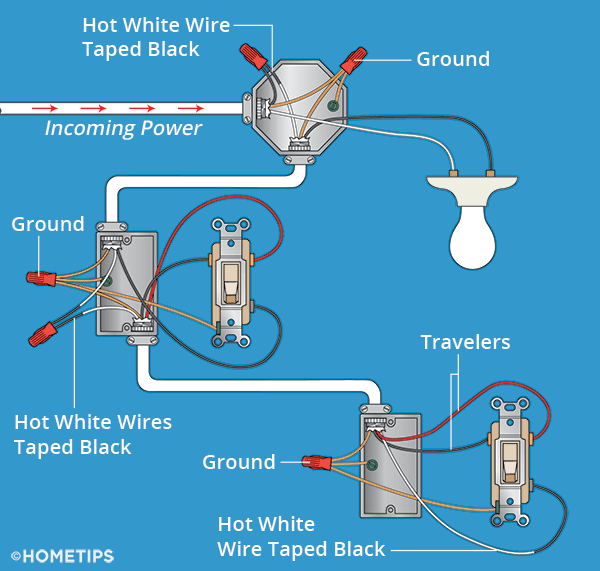
/Lightswitchrepair-GettyImages-173626342-5917e0795f9b586470054c54.jpg)
